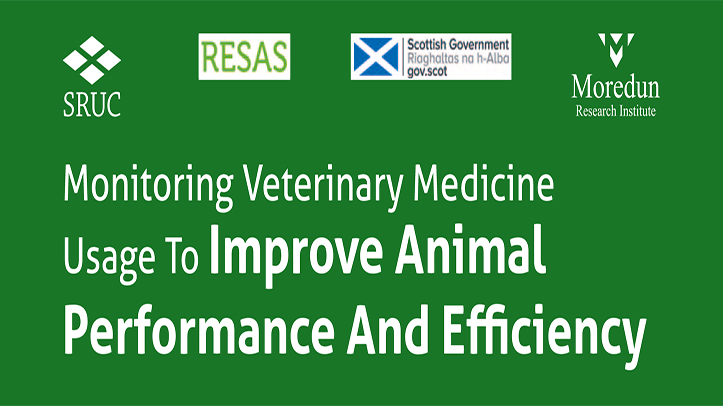Moredun Research Institute, in collaboration with Scotland’s Rural College (SRUC), is looking for beef farmers across the UK to take part in a survey investigating patterns of veterinary medicine use in UK beef cattle.
The project, funded by the Scottish Government, aims to understand patterns of veterinary medicine use in beef cattle and work out how treatments are linked to animal performance.
By contributing to the survey, farmers will help researchers acquire a broader understanding of how the use of veterinary medicines varies across the UK and how medicine use is associated with animal performance. Ultimately, this will provide a picture of the most important diseases affecting UK beef producers, where and when they are most prevalent, and the extent to which they are affecting production.
Led by Moredun’s Dr Adam Hayward, the research team are keen to obtain veterinary medicine records from UK beef producers who rear or finish cattle and who maintain medicine records in an electronic format, e.g. on farm software.
Essential information they are looking for includes all the treatments given to each animal (antibiotics, vaccines, wormers, etc.), and the date and reason for treatment. Additional information, such as age, breed and sex of the animal would also be welcomed. All data will be anonymous and treated confidentially.
Dr Hayward said: “Obtaining information on veterinary medicine use will enable us to see what parasites and pathogens are most prevalent, and where and when they are occurring.
By linking this to animal performance data we will also gain a better picture of the cost of these diseases to the industry and how we can target interventions.”
Carol-Anne Duthie, from SRUC, added: “We are excited to be working alongside colleagues from Moredun on such an important issue. Through direct engagement with the farming sector, the project will provide a clearer understanding of the key disease challenges affecting Scotland’s beef sector and their economic impact.”
The survey will be on-going for approximately two years with farmers welcome to sign up any time during this period, and there is no upper limit to the number of participants.


